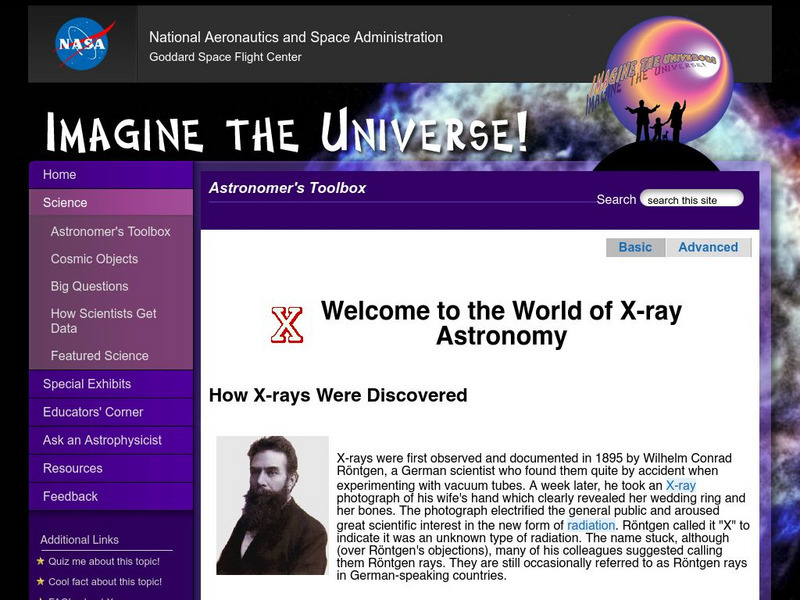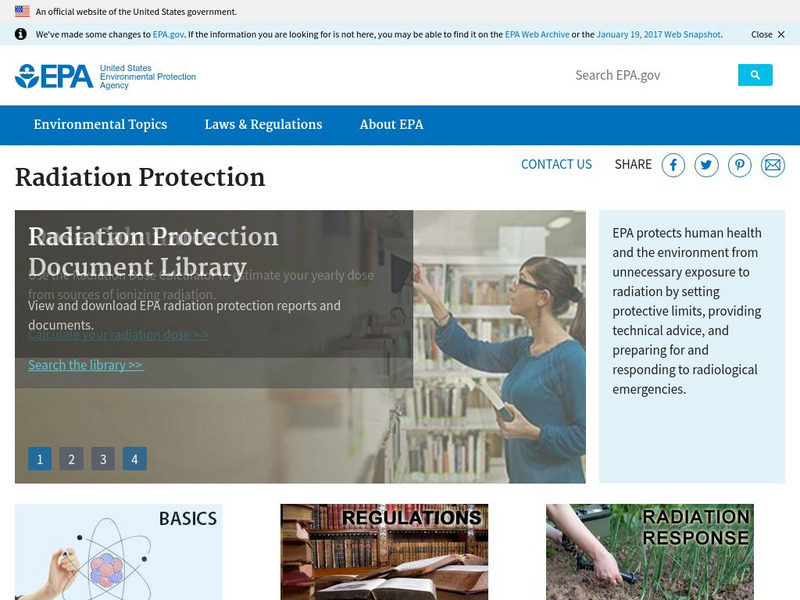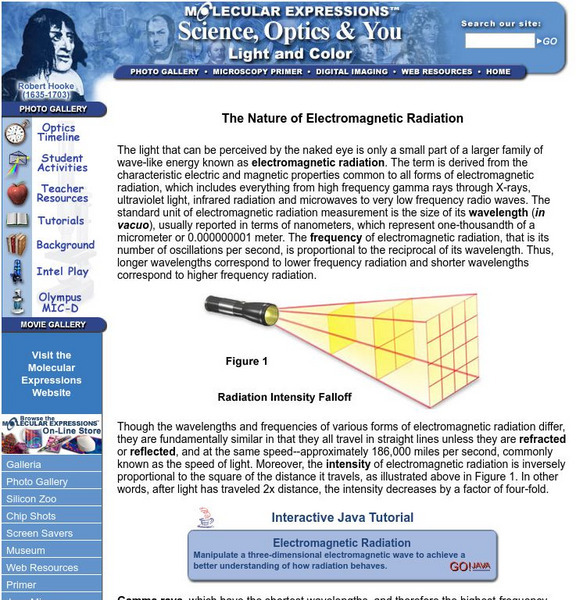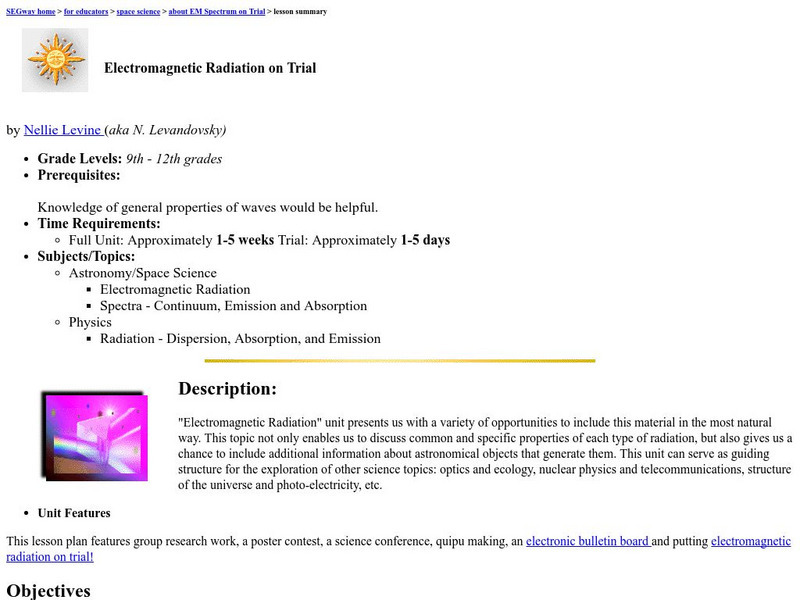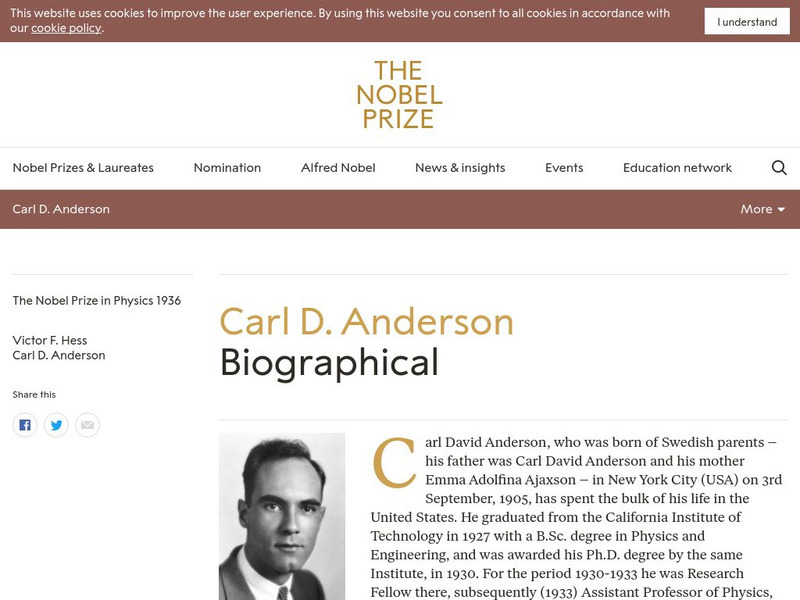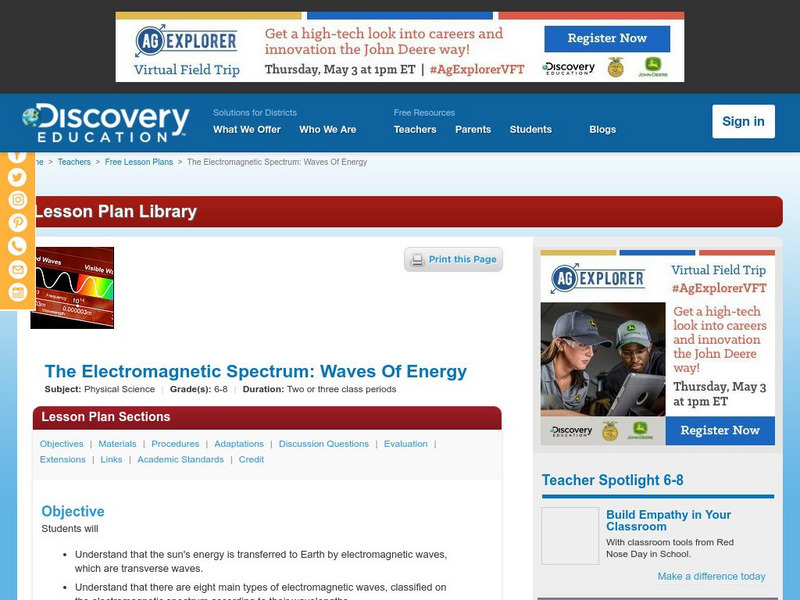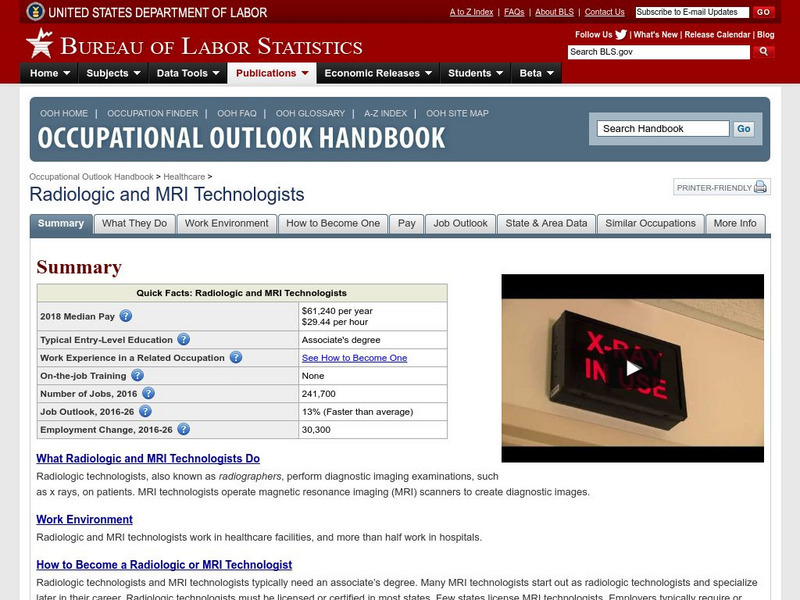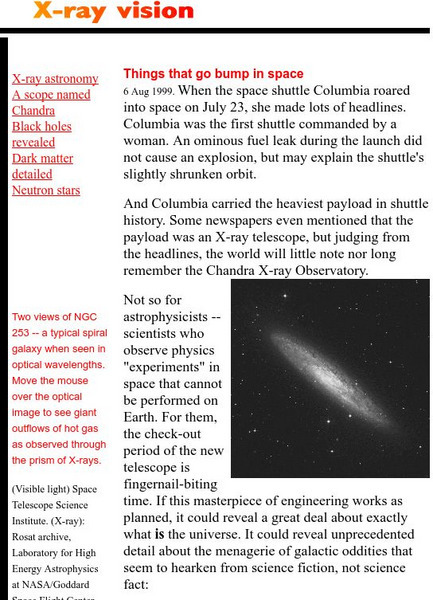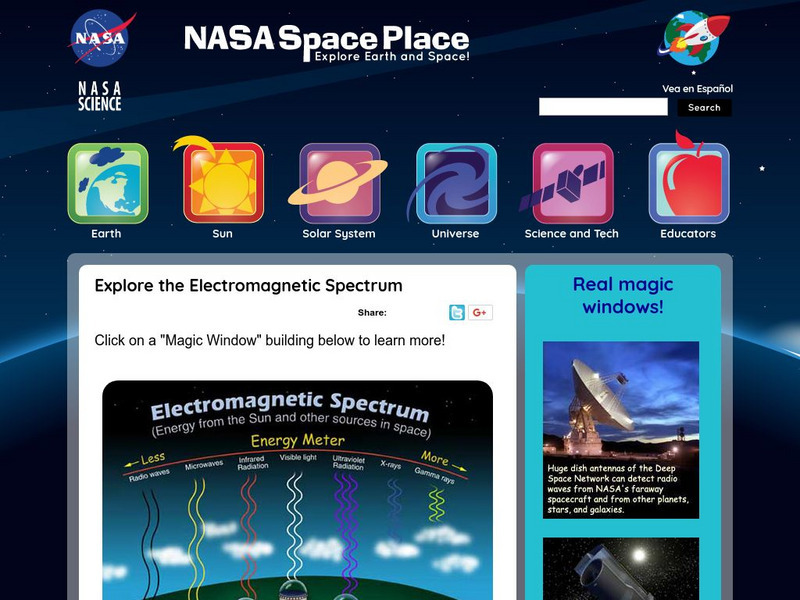NASA
Nasa: Imagine the Universe: Welcome to the World of X Ray Astronomy
Site recounts how X-rays were discovered as well as who discovered them. Offers graphics, links to facts on this topic, a quiz, and teacher resources.
TED Talks
Ted: Ted Ed: Mysteries of Vernacular: X Ray
The story of the word X-Ray is one of great thinkers. French philosopher Rene Descartes isolated the letters X, Y and Z to stand for unknowns, and centuries later, Wilhelm Rontgen discovered the X-ray, using the X for the unknown nature...
Other
American Institute of Physics: Marie Curie and the Science of Radioactivity
Resource provides an in-depth exhibit featuring Marie Curie and her contribution to the science of radioactivity.
University of Colorado
University of Colorado: Physics 2000: Cat Scans: Projecting Shadows
This page and the three pages which follow discuss how X-ray technology can be used to produce an image of the human body. Discussion is understandable and highly intriguing. Several interactive animations allow the visitor to explore...
Nobel Media AB
The Nobel Prize: Arthur Holly Compton Biographical
In addition to overviewing Compton's (1892-1962 CE) studies in x-rays, this article includes information on Compton's published works, his education, and personal life.
Read Works
Read Works: Electromagnetic Radiation
[Free Registration/Login Required] An informational text about electromagnetic radiation and the effects it creates. A question sheet is available to help students build skills in reading comprehension.
US Environmental Protection Agency
Epa: Radiation Protection
Find out about the EPA's Radiation Protection Division, which aims to protect the nation's people and environment from harmful exposure to radiation.
BBC
Bbc: Gcse Bitesize: Radiation Treatment
X-rays, gamma rays and beta particles are all used in medicine to treat internal organs. X-rays are produced by firing electrons at a metal target and gamma rays are emitted by the nucleus of radioactive atoms. Gamma rays are used to...
Florida State University
Florida State University: Nature of Electromagnetic Radiation
This site from The Florida State University provides an informational page on electromagnetic radiation discusses the characteristics and properties of its many forms including X-rays, gamma rays, ultraviolet radiation, infrared...
Cosmo Learning
Cosmo Learning: Applied Science and Technology 210: Electrical Engineering
A collection of video lectures from a course that explores the application of electrical engineering topics. Webpage includes twenty-eight lectures from a professor at the University of California, Berkeley. Lectures vary in length and...
University of California
U.c. Berkeley: Spectra From Space
View the entire spectrum of electromagnetic radiation and get information on telescopes especially designed to view different wavelengths of the spectrum.
University of Colorado
University of Colorado: Physics 2000: Electromagnetic Waves
Using a student-teacher dialogue format, this page discusses the nature of light as an electromagnetic wave and the electromagnetic spectrum.
NASA
Viewing the Violent Universe: What Are Gamma Rays?
The universe produces a broad range of light, only a fraction of which is visible to our eyes. Gamma rays are nonvisible light, which also includes x-rays, ultraviolet light, infrared radiation, and radio waves.
TED Talks
Ted: Ted Ed: Light Waves, Visible and Invisible
Lucianne Walkowicz shows us the waves just beyond our perception: microwaves, radio waves, x-rays and more. [5:58]
University of California
Center Science Edu.: Electromagnetic Radiation on Trial
Here is a 1-5 day unit on electromagnetic radiation that features a teacher guide and student activities with extensions.
Nobel Media AB
The Nobel Prize: Carl D. Anderson Biographical
This site provides a brief article from The Nobel Foundation on the American Physicist, Carl David Anderson. The article overviews his education and involvement in radiation research and cosmic-ray studies, through which he discovered...
Discovery Education
Discovery Education: The Em Spectrum: Waves of Energy
Students are introduced to the electromagnetic spectrum through this group research activity. Each group investigates a different wavelength range within the em spectrum and reports back to class. Discussion ideas also included.
Nobel Media AB
The Nobel Prize: Wilhelm Conrad Rontgen Biographical
This biographical note on Wilhelm Conrad Rontgen describes his boyhood, upbringing, education, scientific work and accomplishments. Focuses on his studies of Xrays.
PBS
Pbs Learning Media: The Electromagnetic Spectrum: Frontline
This video segment adapted from FRONTLINE introduces the electromagnetic spectrum and explains how the various types of electromagnetic waves are distinguished by the amount of energy each wave carries.
Nobel Media AB
The Nobel Prize: The Nobel Prize in Physics 1935 Presentation Speech
The Nobel Physics Chairman made this speech when presenting the Prize to Chadwick. It clearly explains the importance and depth of Chadwick's work. Site by Nobel e-Museum.
US Department of Labor
Bureau of Labor Statistics: Radiologic Technician
Published by the Department of Labor, this site details the Radiologic Technician Career. Employment outlook, and projections are provided with training and qualifications data.
University of Wisconsin
The Why Files: Things That Go Bump in Space
Contains an introduction to x-ray astronomy, describing how x-rays are being used by scientists to learn about the universe. Also contains links to sites describing black holes, dark matter, neutron stars, and how they are investigated...
NASA
Nasa's the Space Place: A Trip to the Land of the Magic Windows
Explore the electromagnetic spectrum and learn about each type of energy on the spectrum.
Famous Scientists
Famous Scientists: Maria Sklodowska Curie
Read about the life and scientific work of Marie Curie, possibly the most famous female scientist in history. In addition to providing biographical information, this page includes details on her scientific discoveries and her influence...
